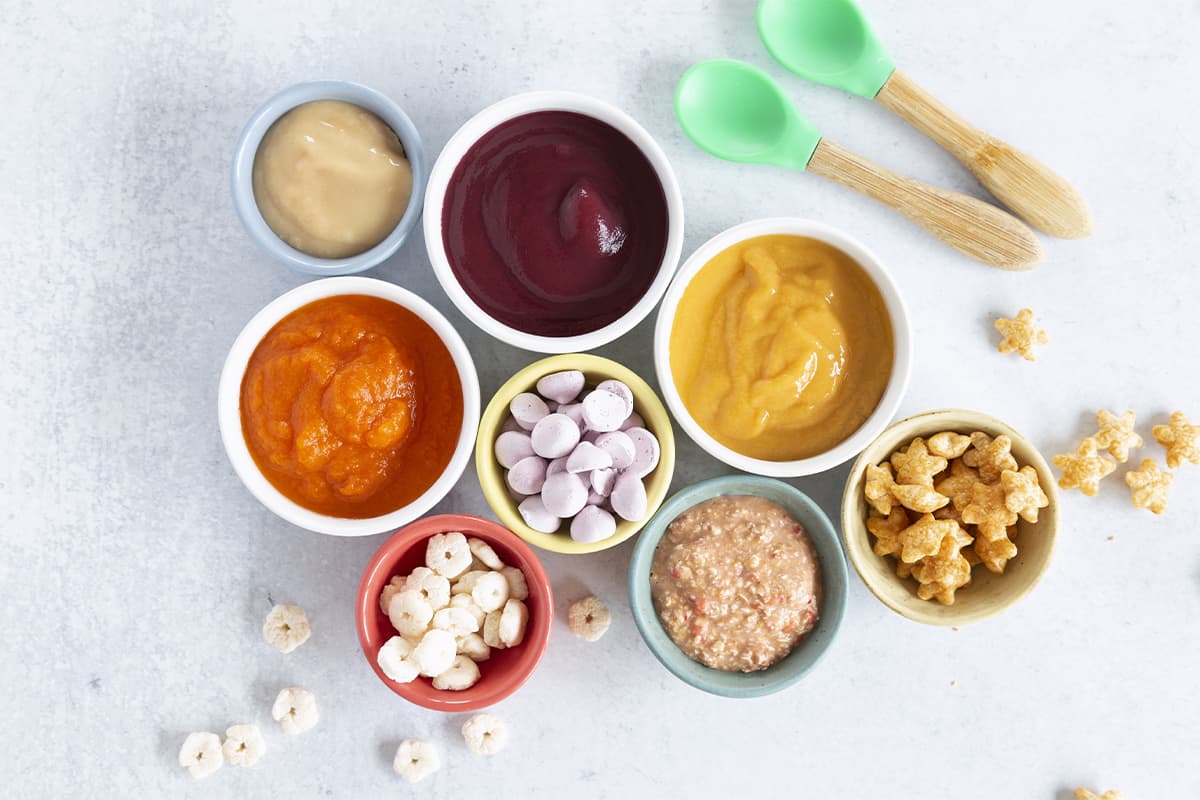The Ultimate Guide to Organic Baby Food in the U.S.: Benefits, Choices, and Tips
The Ultimate Guide to Organic Baby Food in the U.S.: Benefits, Choices, and Tips
Organic baby food is gaining popularity among parents who prioritize natural and chemical-free nutrition for their little ones. Understanding what makes baby food organic, how to choose the best options, and whether to go homemade or store-bought can help ensure your baby gets the best possible start in life. This guide covers everything you need to know about organic baby food in the U.S.
What is Organic Baby Food?
Organic baby food is made from ingredients that are grown without synthetic pesticides, artificial preservatives, genetically modified organisms (GMOs), or synthetic fertilizers. In the U.S., organic baby food must meet the USDA Organic Certification standards to be labeled as organic.
USDA Organic Labeling Guide
- 100% Organic: Contains only organic ingredients.
- Organic: At least 95% organic ingredients.
- Made with Organic Ingredients: At least 70% organic ingredients but not USDA-certified.
Benefits of Organic Baby Food
1. Fewer Chemicals and Pesticides
Organic baby food is free from synthetic pesticides and herbicides, reducing the risk of chemical exposure in infants with developing immune systems.
2. No Artificial Preservatives or Additives
Organic baby food does not contain artificial sweeteners, colors, or preservatives, making it a more natural choice.
3. GMO-Free Guarantee
Certified organic baby food is non-GMO, ensuring no genetically modified ingredients.
4. Rich in Essential Nutrients
Organic farming often results in higher levels of antioxidants and essential vitamins, providing better nutrition for growing babies.
5. Environmentally Friendly
Organic farming supports sustainable agriculture, reducing environmental impact and promoting better soil and water quality.
How to Choose the Best Organic Baby Food
With so many brands on the market, here’s how to select the best organic baby food:
1. Look for the USDA Organic Seal
Always check for the USDA Certified Organic label to ensure that the product meets strict organic farming and production standards.
2. Read Ingredient Labels Carefully
- Choose products with simple, whole-food ingredients like organic vegetables, fruits, and grains.
- Avoid added sugar, salt, or artificial thickeners.
3. Check Expiry Dates and Storage Instructions
- Fresh and refrigerated organic baby food has a shorter shelf life compared to conventional options.
- Ensure proper storage to maintain nutritional quality.
4. Consider Packaging
- Glass jars or BPA-free pouches are safer choices to avoid potential chemical leaching.
- Opt for resealable packaging for convenience.
Homemade vs. Store-Bought Organic Baby Food
Homemade Organic Baby Food
Pros: ✔ Full control over ingredients and freshness. ✔ Cost-effective, especially when using locally sourced organic produce. ✔ Can introduce a variety of fresh flavors and textures.
Cons: ✘ Time-consuming to prepare and store. ✘ Requires knowledge of food safety and proper storage. ✘ Less convenient for on-the-go feeding.
Store-Bought Organic Baby Food
Pros: ✔ Convenient and ready to serve. ✔ Formulated to meet nutritional guidelines for infants. ✔ Available in diverse flavors and combinations.
Cons: ✘ May contain thickening agents or extra processing. ✘ Some varieties may have lower nutrient levels compared to homemade versions. ✘ Higher cost for premium organic brands.
Top Organic Baby Food Brands in the U.S.
Some of the most reputable organic baby food brands include:
- Earth’s Best Organic – USDA-certified, minimal processing.
- Happy Baby Organics – Offers a variety of organic meals and snacks.
- Plum Organics – Known for BPA-free packaging and high-quality ingredients.
- Gerber Organic – A trusted brand with an organic product line.
Tips for Introducing Organic Baby Food
- Start with single-ingredient purees (e.g., organic sweet potatoes, apples, or carrots).
- Introduce new foods one at a time to monitor for allergies.
- Gradually transition to chunkier textures and finger foods as your baby grows.
- Mix homemade purees with store-bought organic baby food for variety and convenience.
Final Thoughts
Organic baby food is a nutritious, chemical-free option that supports your baby’s health and development. Whether you choose homemade or store-bought, prioritizing USDA-certified organic ingredients and whole foods can help lay the foundation for lifelong healthy eating habits.
SEO Keywords: organic baby food USA, best organic baby food brands, homemade organic baby food, USDA certified baby food, organic baby food benefits, baby food buying guide, non-GMO baby food
By following these guidelines, you can confidently make the best organic food choices for your baby’s growth and well-being!
amazon best seller






Comments